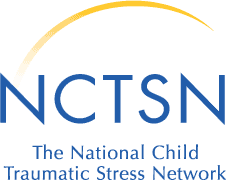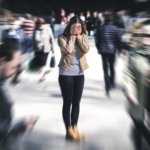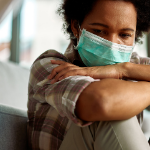Resources in the Aftermath of Tragedy
 Resources in Response to the Robb Elementary School Shooting
Resources in Response to the Robb Elementary School Shooting
In response to the Robb Elementary School shooting in Uvalde Texas, the National Child Traumatic Stress Network has developed resources to help children, families, educators, and communities navigate what they are seeing and hearing, acknowledge their feelings, and find ways to cope together. These resources include:
- Talking to Children about the Shooting
- Helping Youth After a Community Trauma: Tips for Educators (En Español)
- Talking to Children: When Scary Things Happen (En Español)
- Talking to Teens about Violence (En Español)
- Tips for Talking to Students about Violence
- Coping After Mass Violence: For Adults
- For Teens: Coping After Mass Violence(En Español)
- Helping School-Age Children with Traumatic Grief: Tips for Caregivers (En Español)
- Helping Teens with Traumatic Grief: Tips for Caregivers(En Español)
- Helping Young Children with Traumatic Grief: Tips for Caregivers (En Español)
- Guiding Adults in Talking to Children about Death and Attending Services
- After a Crisis: Helping Young Children Heal
- Age-Related Reactions to a Traumatic Event
- Once I Was Very Very Scared – children’s book for young children
- After the Injury—website for families with injured children
- Health Care Toolbox—website for pediatric health providers working with injured children
- Pause-Reset-Nourish (PRN) to Promote Wellbeing (En Español) (for responders)
Psychological First Aid
The NCTSN also has resources for responders on Psychological First Aid (PFA; En Español). PFA is an early intervention to support children, adolescents, adults, and families impacted by these types of events. PFA Mobile and the PFA Wallet Card (En Español) provide a quick reminder of the core actions. The PFA online training course is also available on the NCTSN Learning Center.
Additional PFA resources for schools include:
- Psychological First Aid for Schools (PFA-S) – Field operations guide
- Providing PFA-S: For Health-Related Professionals – handout
- Providing PFA-S: For Principals and Administrators– handout
- Providing PFA-S: For School Support Staff – handout
- Providing PFA-S: For Teachers– handout
From the National Mass Violence and Victimization Resource Center
- Transcend (mobile app to assist with recovery after mass violence)
- Rebuild your Community: Resources for Community Leaders
- Media Guidelines for Homicide Family Survivors
- Timeline of Activities to Promote Mental Health Recovery
- Self-Help: Resources for Survivors
- E-learning Courses: Trainings for Clinicians
- Resources for Victim Assistance Professionals
From the Center for the Study of Traumatic Stress at the Uniformed Services University
- Grief Leadership: Leadership in the Wake of Tragedy
- Leadership Communication: Anticipating and Responding to Stressful Events
- Coping with Stress Following a Mass Shooting
Disaster Helpline
SAMHSA has a Disaster Distress Helpline – call or text 1-800-985-5990 (for Spanish, press “2”) to be connected to a trained counselor 24/7/365.
Additional Resources
For those that are needing technical assistance or additional resources, please don’t hesitate to contact Dr. Melissa Brymer at mbrymer@mednet.ucla.edu.

 Today’s threat on TikTok for potential school violence has spurred widespread concern and anxiety.
Today’s threat on TikTok for potential school violence has spurred widespread concern and anxiety.  Guilt is a normal, healthy emotion. Experiencing it when you’ve hurt someone or when you’ve made a mistake is a good sign—it means you have a conscience. But sometimes, you may experience unjustified guilt.
Guilt is a normal, healthy emotion. Experiencing it when you’ve hurt someone or when you’ve made a mistake is a good sign—it means you have a conscience. But sometimes, you may experience unjustified guilt. The COVID-19 vaccine provides reassurances in keeping us physically protected, yet it does not automatically reduce or eliminate our anxiety, change in that way is going to take time and patience after all we have endured the past 18 months.
The COVID-19 vaccine provides reassurances in keeping us physically protected, yet it does not automatically reduce or eliminate our anxiety, change in that way is going to take time and patience after all we have endured the past 18 months.  As restrictions start to ease, more and more employees are returning to the workplace, no doubt with anxious feelings, questions, and possible concerns. Feeling dread and uncertainty is perfectly normal…
As restrictions start to ease, more and more employees are returning to the workplace, no doubt with anxious feelings, questions, and possible concerns. Feeling dread and uncertainty is perfectly normal… One year ago, the World Health Organization reported the COVID 19 virus as a global pandemic and the world changed. Requirements for social distancing, wearing a mask and staying at home, for most, resulted in anxiety. Most of us experienced fear and worry about contacting or spreading the virus; gradually, routines developed, and we cautiously adjusted, still with a good amount of stress.
One year ago, the World Health Organization reported the COVID 19 virus as a global pandemic and the world changed. Requirements for social distancing, wearing a mask and staying at home, for most, resulted in anxiety. Most of us experienced fear and worry about contacting or spreading the virus; gradually, routines developed, and we cautiously adjusted, still with a good amount of stress. Why is it important to mark an anniversary?
Why is it important to mark an anniversary? There has certainly been much lost in the past year…
There has certainly been much lost in the past year… How do we look forward with hope?
How do we look forward with hope? The 2020 election season would have been a stressful one even during normal times but, compounded with a pandemic it is creating, for some, incredible stress and frustration. If you find yourself experiencing what has been described as Election Stress Disorder you are not alone; according to a study recently conducted by the
The 2020 election season would have been a stressful one even during normal times but, compounded with a pandemic it is creating, for some, incredible stress and frustration. If you find yourself experiencing what has been described as Election Stress Disorder you are not alone; according to a study recently conducted by the  Why is sunlight so important? Exposure to sunlight is believed to increase a hormone in the brain called serotonin which is associated with boosting your mood and helping you to feel more focused and calmer. The darker lighting at night triggers the brain to make another hormone called melatonin which is responsible for helping you sleep.
Why is sunlight so important? Exposure to sunlight is believed to increase a hormone in the brain called serotonin which is associated with boosting your mood and helping you to feel more focused and calmer. The darker lighting at night triggers the brain to make another hormone called melatonin which is responsible for helping you sleep.